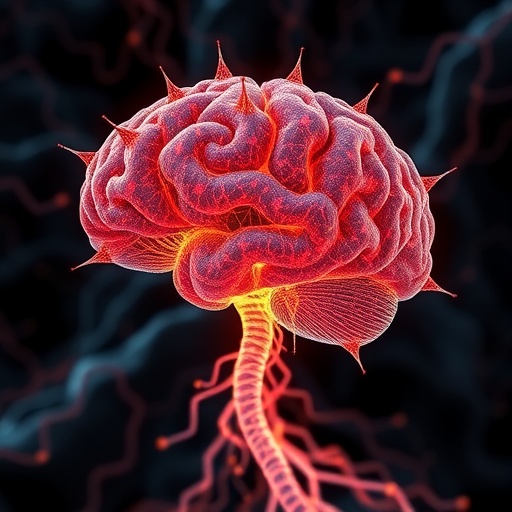Genoa, Italy – 9 October 2025. In a noteworthy development within the realm of neuroscience, neurobiologist Angelo Forli has secured the esteemed Career Development Grant from the Giovanni Armenise Harvard Foundation. This prestigious award, amounting to 1 million dollars, is earmarked for a transformative five-year research project aimed at unlocking the intricate biological mechanisms that govern the human brain’s ability to adapt and respond effectively to diverse challenges. With this significant funding, Forli has transitioned from his previous position in the United States to establish his new laboratory at the Italian Institute of Technology (IIT), under the ambitious title of “Neural Networks for Natural Intelligence.”
As the field of neuroscience enters an exciting phase of discovery, investigating the dynamic adaptability of the human brain stands at the forefront. Forli’s research aims to elucidate how the brain orchestrates flexibility in behavior—not merely in adapting to predictable circumstances but in navigating the unpredictable landscape of everyday life. The implications of these findings could extend beyond academic curiosity, potentially informing the design of intelligent technologies inspired by the brain’s sophisticated functionalities.
The Giovanni Armenise Harvard Foundation, which has a longstanding commitment to fostering talent among young scientists working in Italy, has played a pivotal role in Forli’s career trajectory. Each year, it meticulously selects promising candidates from across the globe, facilitating their integration into Italy’s scientific community. With over thirty scientists having benefited from this program since its inception, the foundation underscores its dedication to enhancing the landscape of life sciences research in Italy. The selection of Forli as a 2025 grantee speaks volumes about his contributions to the field and the trust vested in his vision for advancing neuroscience.
Forli’s academic journey began at the University of Padua, where he embarked on a study of complex systems. This initial immersion in physics sparked a deeper fascination with the brain, often regarded as the epitome of complex systems. Recognizing that only an interdisciplinary approach could yield the necessary insights into brain mechanisms, Forli directed his studies toward understanding the intricate dance of neural circuits. His Master’s and PhD research illuminated facets of spatial and social memory, ultimately leading him to the University of California, Berkeley.
During his six-year tenure at Berkeley, Forli’s research received substantial accolades, including significant grants that enabled pioneering investigations into memory mechanisms. Triumph culminated in the 2024 Peter and Patricia Gruber International Research Award in Neuroscience, a testament to his influential contributions to the understanding of cognitive function. The Career Development Award marks not only a financial milestone but also the opening of a new chapter geographically and intellectually for Forli as he returns to Italy to spearhead ambitious research initiatives.
Forli’s primary project will delve into the hippocampus—a critical brain region integral to memory and learning processes. This area is notably affected in Alzheimer’s disease and other cognitive impairments, making it a focal point for understanding the underlying architecture of memory. Through an innovative fusion of experimental methodologies and mathematical modeling, Forli and his team aspire to decode the algorithms guiding the hippocampal circuits’ coordination of flexible behaviors. This dual approach is pivotal in addressing neurological diseases and informing potential therapeutic avenues.
In his exploration of flexibility, Forli will also investigate a less trodden path: the concept of regeneration. Remarkably, certain species exhibit a capacity to regenerate lost or damaged organs—a feature the research community has only begun to understand. Within his lab, Forli intends to study the neural networks’ ability to regain control over regenerated organs and how functionality is restored in these instances. Understanding these processes is central to the emerging field of regenerative intelligence, which seeks to unravel the principles by which biological systems can reorganize themselves to revive lost capabilities.
As biotechnology advances, the potential for reconstructing organs and tissues has never been more tangible. This growing intersection of neuroscience and regenerative medicine presents an unprecedented landscape for exploration. Forli’s findings carry significant implications not only for recognizing how adaptive mechanisms can falter but also for devising innovative strategies that tap into the regenerative capacity of biological systems.
Giorgio Metta, Scientific Director of IIT, has expressed keen enthusiasm about Forli’s return to Italy, citing it as a considerable source of pride for the institution. The recruitment of Forli underscores IIT’s competitive edge in the global scientific arena, reflecting its success in attracting top-tier talent from esteemed institutions. Additionally, Metta highlighted the relevance of Forli’s research endeavors to IIT’s strategic objectives in advancing robotics and artificial intelligence, further establishing a narrative of interconnectedness between biological and technological realms.
Elisabetta Vitali, Executive Director of the Giovanni Armenise Harvard Foundation, echoed these sentiments, stating her excitement at welcoming Angelo Forli into their distinguished network of award recipients. This foundation’s unwavering commitment to merit-based recognition has brought numerous high-caliber scientists to Italy, bolstering the country’s reputation for excellence in scientific research.
In conclusion, as he embarks on this new chapter in his scientific career, Angelo Forli represents a beacon of hope in unraveling the complexities of the human brain. His research holds the potential to transform not only our understanding of adaptive neurological mechanisms but also our approach to developing smarter, more versatile technologies. The journey ahead promises to be filled with inquiry and innovation, as the bridge between neuroscience and practical applications is built ever sturdier.
Subject of Research: Mechanisms of brain adaptability and regenerative intelligence
Article Title: Neurobiologist Angelo Forli Establishes New Lab Dedicated to Neural Networks for Natural Intelligence
News Publication Date: October 9, 2025
Web References: N/A
References: N/A
Image Credits: IIT-Istituto Italiano di Tecnologia
Keywords
Life sciences, Neuroscience, Science careers, Neurons
Tags: Angelo Forli neurobiologistbiological mechanisms of brain adaptabilitybrain versatility and intelligencecareer development grant in sciencedynamic adaptability of the human brainflexible behavior in neuroscienceGiovanni Armenise Harvard Foundationimplications of brain research on technologyItalian Institute of Technology researchneural adaptability in humansneuroscience research fundingtransformative neuroscience projects





